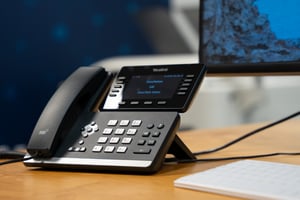How HIPAA-Compliant VoIP Improves Healthcare Communication
Understanding HIPAA Requirements for VoIP Systems
Voice over Internet Protocol (VoIP) technology offers numerous advantages for healthcare organizations, but it must meet the stringent requirements of the Health Insurance Portability and Accountability Act (HIPAA). HIPAA compliance is essential for ensuring that Protected Health Information (PHI) remains confidential and secure. A HIPAA-compliant VoIP system must adhere to specific rules, including the Privacy Rule, the Security Rule, and the Business Associate Agreement (BAA) requirements.
The Privacy Rule grants patients rights over their PHI and requires written permission for its use or disclosure. In contrast, the Security Rule focuses on safeguarding electronic PHI (ePHI) from unauthorized access, both in storage and during transmission. This includes implementing encryption for call logs, voicemail, SMS text messages, and internet fax. Additionally, VoIP providers must sign a BAA, committing to adhere to HIPAA guidelines and protect PHI.
Key Benefits of HIPAA-Compliant VoIP in Healthcare
Implementing a HIPAA-compliant VoIP system brings numerous benefits to healthcare organizations. First and foremost, it ensures the protection of patient data, maintaining trust and compliance with legal standards. This protection extends to various communication channels, including voice calls, video conferencing, and digital messaging, all of which are vital for modern healthcare operations.
Moreover, HIPAA-compliant VoIP systems facilitate enhanced internal collaboration. Secure and reliable communication tools allow healthcare professionals to share information quickly and accurately, improving decision-making and patient care. The integration with productivity software, such as Office 365, further streamlines workflows, reducing administrative burdens and allowing healthcare providers to focus on patient care.
Another significant advantage is cost-effectiveness. VoIP systems typically offer substantial savings compared to traditional phone lines. These savings can be reinvested into other critical areas, such as medical equipment or staff training, ultimately benefiting the overall healthcare delivery.
Implementing a HIPAA-Compliant VoIP System
Implementing a HIPAA-compliant VoIP system may seem daunting, but it can be straightforward with the right approach. Start by selecting a VoIP provider experienced in healthcare communications and familiar with HIPAA requirements. Ensure that the provider offers a comprehensive BAA and has robust security measures in place, including data encryption and secure access controls.
Next, involve your IT and legal teams in the implementation process. Their expertise will be crucial in configuring the system to meet HIPAA standards and ensuring that all necessary security protocols are in place. This includes setting up secure networks, encryption, and access controls for all devices used in the communication process.
Training your staff is also essential. Educate your healthcare team on the importance of HIPAA compliance and how to use the new VoIP system securely. Regular training sessions and updates will help maintain high standards of data protection and prevent potential breaches.
Improving Patient Communication and Team Coordination
A HIPAA-compliant VoIP system significantly enhances the patient experience by providing secure and efficient communication channels. Patients can communicate with their healthcare providers through various means, including voice calls, video conferencing, and secure messaging, ensuring they receive timely and accurate information. This level of accessibility and security fosters trust and satisfaction among patients.
Internally, VoIP systems improve collaboration among healthcare teams. Secure communication tools enable seamless information sharing, allowing for more coordinated and effective patient care. Whether team members are working on-site or remotely, they can collaborate without compromising data security.
In conclusion, HIPAA-compliant VoIP systems are vital for modern healthcare organizations. They ensure patient data protection, streamline internal collaboration, and enhance the overall patient experience. By carefully selecting and implementing a compliant VoIP system, healthcare providers can enjoy these benefits while maintaining trust and compliance with legal standards.
Learn more about our healthcare solutions by clicking here.
%20(2).png?width=50&name=SA%20Logo%20Squares%20(20%20x%2020%20in)%20(2).png)


